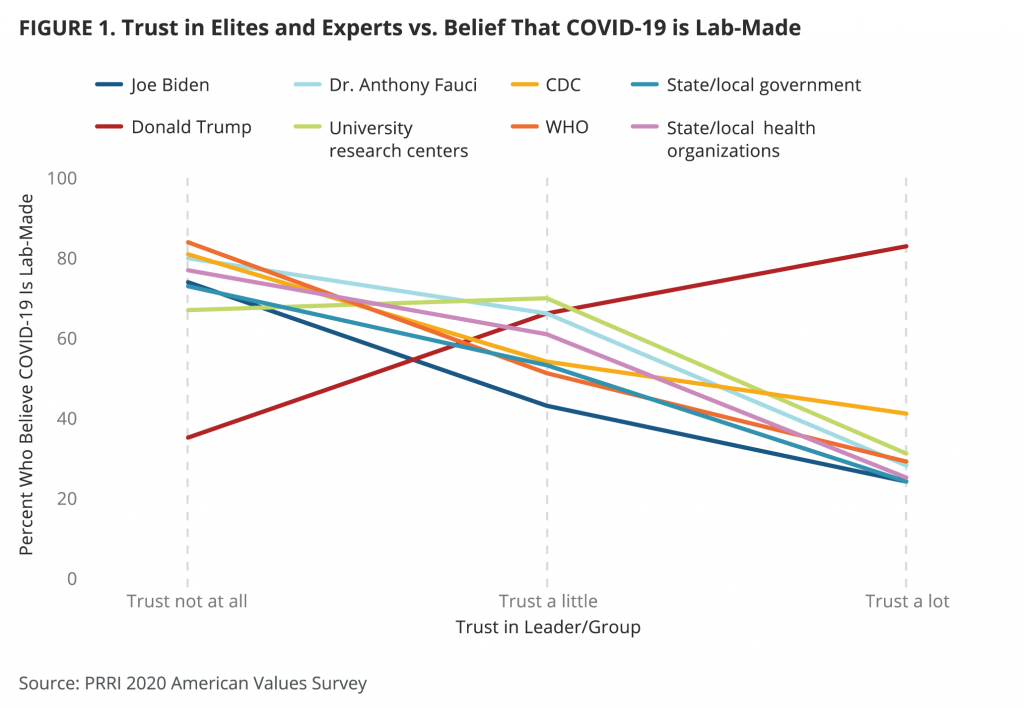New analysis suggests that distrust of elites and experts is closely correlated with conspiracy beliefs about the coronavirus pandemic, and those who hold populist anti-elite and anti-expert views are more likely to exhibit conspiracy thinking.
PRRI’s 2020 American Values Survey found that Americans are divided over whether the coronavirus was created intentionally in a lab (50%) or it developed naturally (49%). The same survey measured public trust in several groups and individuals to provide information about the pandemic, including public health organizations, Dr. Anthony Fauci, and the two leading 2020 presidential candidates.
In general, the more Americans trust various leaders, experts, or institutions to provide accurate information about the virus, the less likely they are to believe that the coronavirus was intentionally created in a lab. However, we observed the opposite relationship with then-president Donald Trump: The more Americans trusted Trump, the more likely they were to believe the virus was lab-made.

Who Trusted Trump?
Few Americans reported placing trust in Donald Trump to provide accurate information about the pandemic. Just 14% placed a lot of trust in him, 24% placed a little, and 61% did not trust him at all. Americans were twice as likely to place a lot of trust in then-Democratic presidential nominee Joe Biden (28%), while more than three in ten trusted Biden a little (32%) or not at all (39%).
Americans were more likely to trust experts and institutions. A slim majority reported a lot of trust in university research centers (51%), while around half said the same of Dr. Anthony Fauci (49%) and the U.S. Centers for Disease Control (48%). Fewer reported a lot of trust in the World Health Organization (42%) and state and local health organizations (40%).
Unsurprisingly, Republicans (39%) were much more likely than independents (9%) or Democrats (1%) to place a lot of trust in Trump. Conservative Republicans were more than twice as likely as moderate Republicans to place a lot of trust in Trump (47% vs. 22%).
One-third or less of all major religious groups reported placing a lot of trust in Trump. White evangelical Protestants (33%) were more likely to trust Trump a lot, followed by white mainline Protestants (20%), Hispanic Protestants (19%), white Catholics (17%), and Hispanic Catholics (11%). Fewer than one in ten non-Christians (8%), other Christians (8%), religiously unaffiliated Americans (7%), and Black Protestants (2%) trusted Trump a lot to provide accurate information on the virus.
White Americans (18%) were slightly more likely than Hispanic Americans (14%) to trust Trump a lot, while significantly fewer multiracial (8%), Asian (3%), or Black Americans (2%) placed a lot of trust in then-president Trump. There is a modest education divide between white Americans, with 22% of white Americans without a four-year college degree, compared to 11% of white Americans with a four-year degree or more, who reported a lot of trust in Trump.
Results for Asian Americans and multiracial Americans should be interpreted with caution. Sample sizes are N=64 and N=87, respectively.



